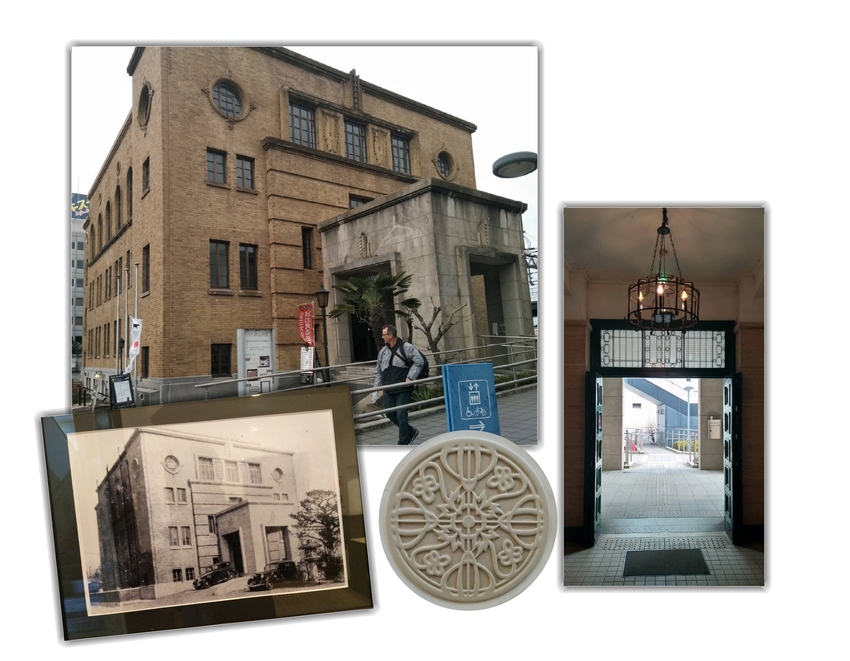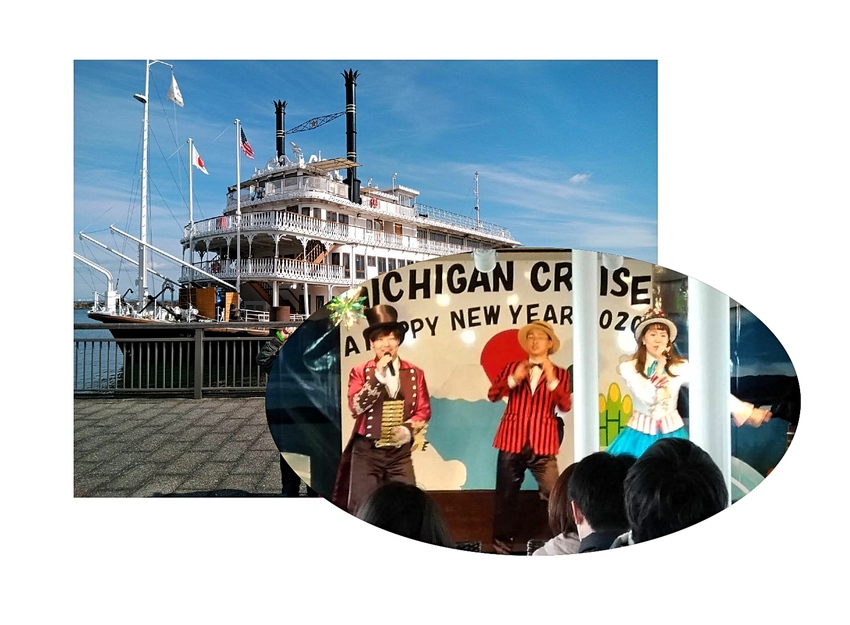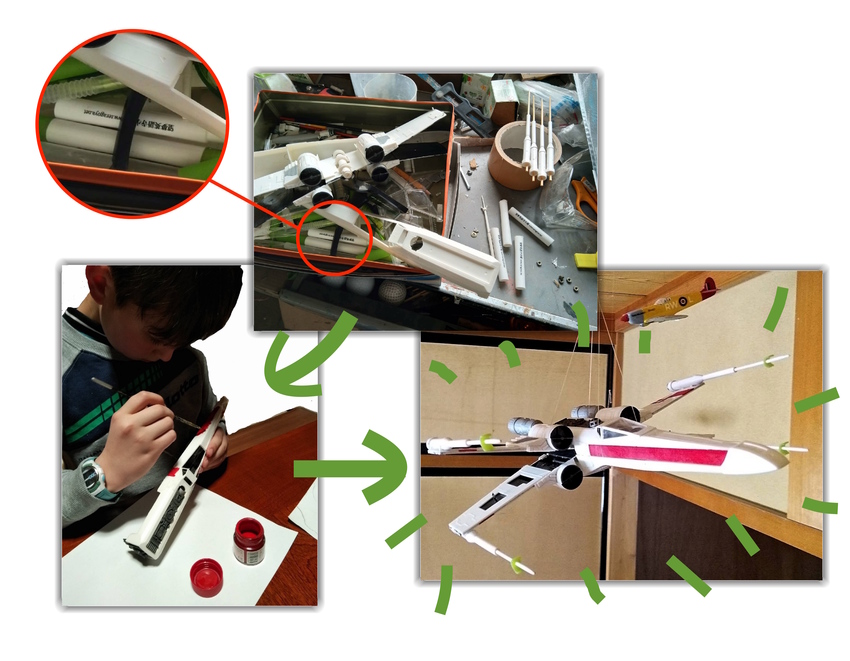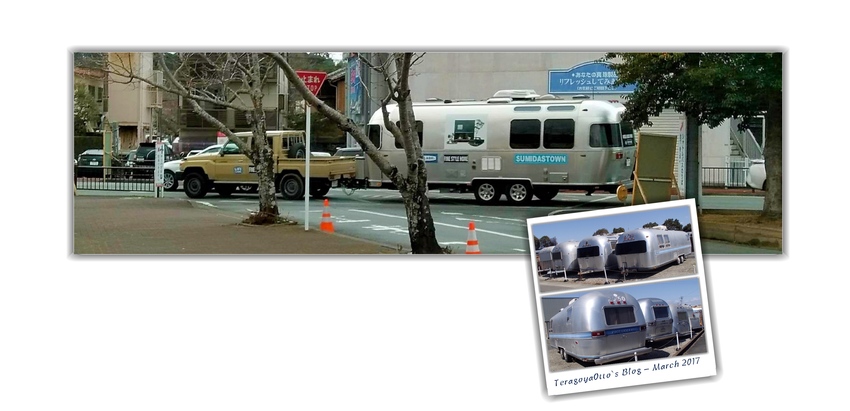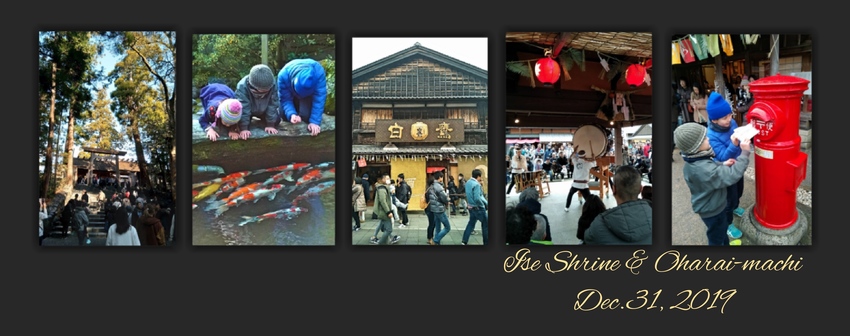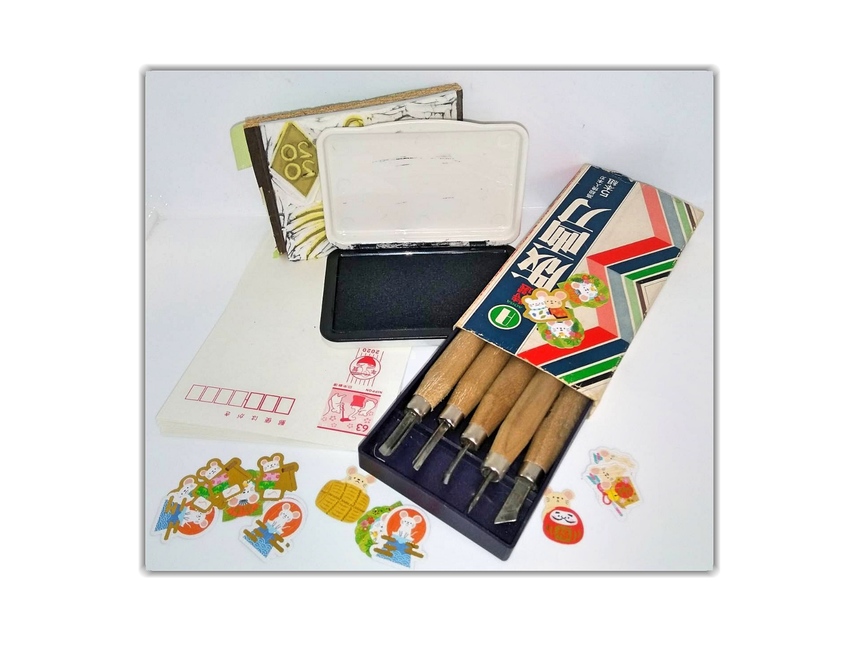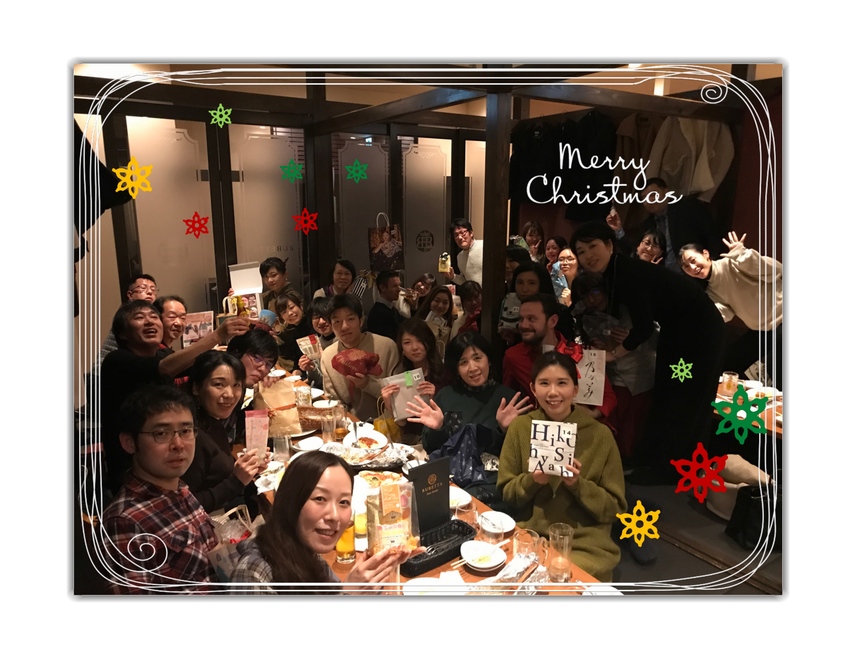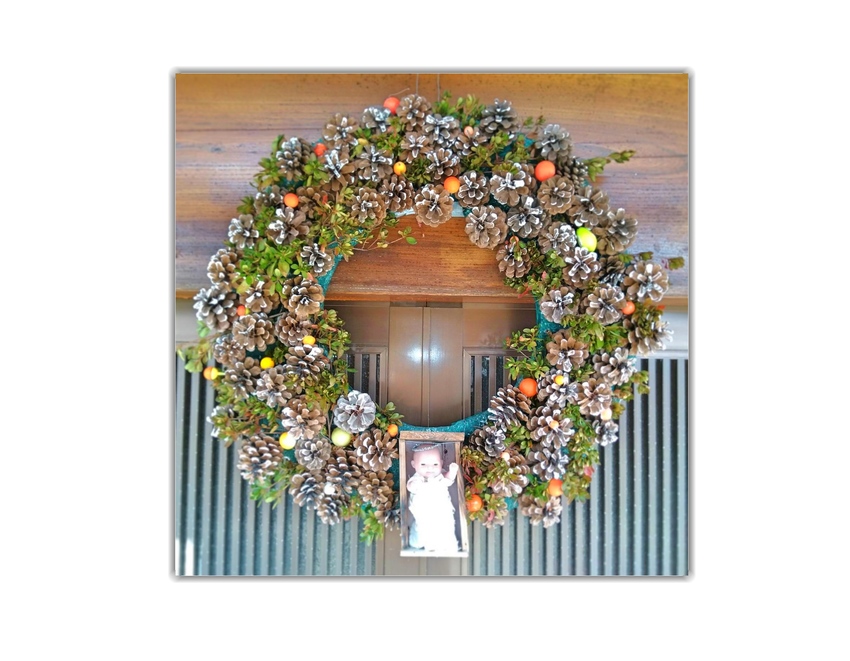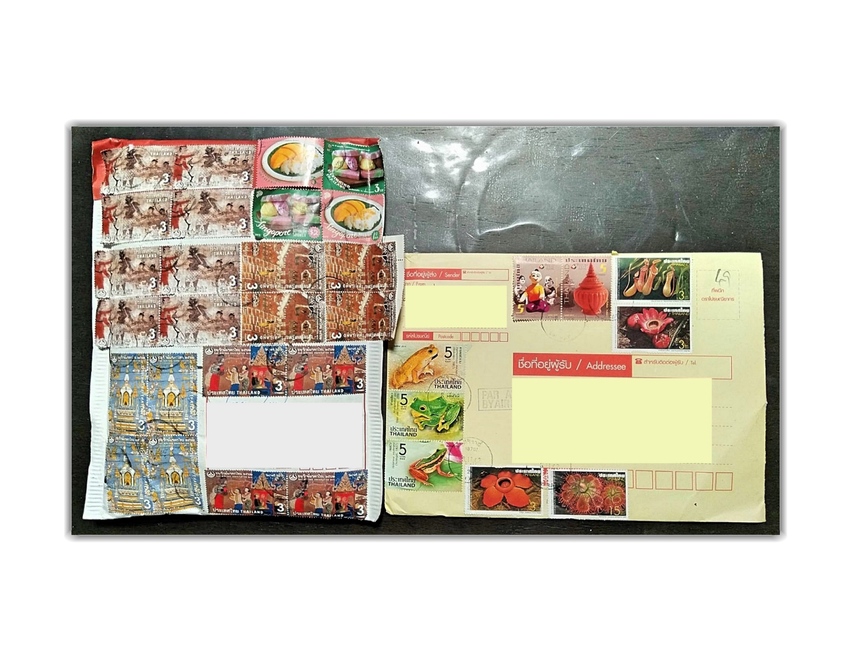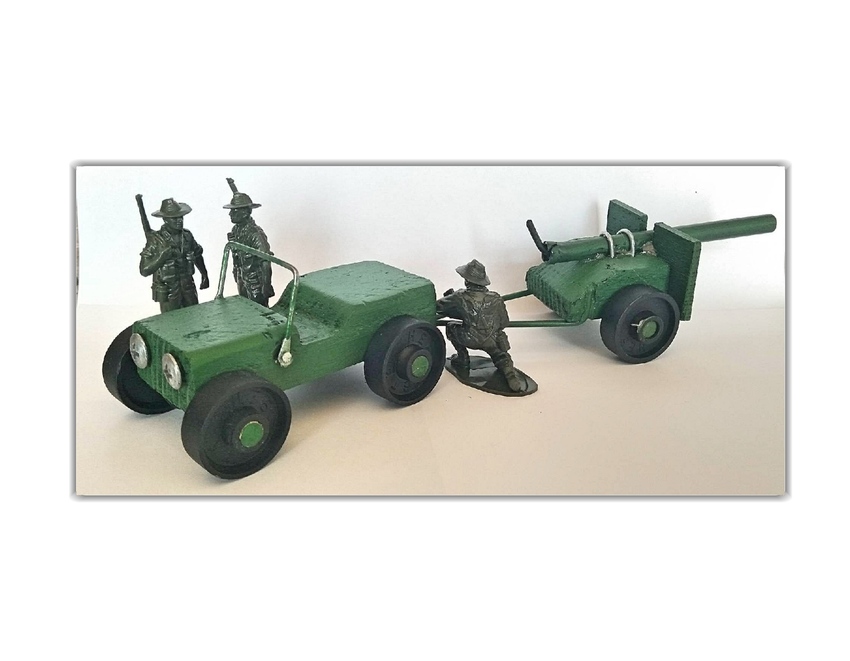In Otsu we had lunch in this old building – it`s the old Otsu Town Hall (旧大津公会堂), built in 1934. I like* old buildings like** this. I`d like to know more about it, but there isn`t much information about it in English online.
By the way, can you see the black cars in the old photograph? They look a little like the 1936 Toyoda model aa, which I saw at the Toyota Museum in Nagoya. However, I`m pretty sure the one on the right is a 1934 Chevrolet master series DA. I`d like a car like that!
Vocabulary:
*like = 好き
**like = 〜ような
`d like to + 動詞 =〜(動詞)し たい
`d like + 名詞 = (名詞)がほしい
On Sunday my family & I went to* the town of Otsu, in Shiga Prefecture, to** visit my sister & her family, who were visiting Japan. We all took a cruise on this boat - The Michigan - on Lake Biwa. During the cruise, there was a show, with performers in colourful outfits (= costumes/uniforms) singing some songs in English. Good job!
Vocabulary
* to = に, へ
** to = ために
I found this plastic model in a wardrobe at my parents` house in Australia. It belonged to my younger brother when he was a kid. He must have put it there & forgotten about it. I decided to bring it to Japan & put it together with my kids. A couple of the guns for the wings were missing or broken, so I put parts of old Teragoya pens there instead. Finally, I put the finished model in my kids` room, hanging from the ceiling. Looks good!
Grammar
Don`t forget to use an object (目的語) with 'put':
“Where did you put the model?” “I put IT in my room.” "Why did you put IT there?" etc. ["Where did you put?": WRONG "I put in my room": WRONG]
After visiting Ise Shrine & Oharai-machi, on the way back to the car park, I saw this Airstream caravan ('travel trailer' or 'trailer' in U.S. English). I sometimes see them used as restaurants, & there`s a place that sells used ones near my house in Ichinomiya (see blog post https://en.bloguru.com/otto/295556/ichinomiya-airstreams ). However, it`s unusual to see one on the road in Japan.
Vocabulary
- car + park = car park ('parking lot' in U.S. English) = 駐車場
- trailer + park = trailer park ('caravan park' in U.K. English) = トレーラーパーク
Happy New Year! On the last day of 2019, I went to Ise Shrine in Mie with my family & my wife`s relatives (親戚). After visiting the shrine, we walked along Oharai-machi for a while*, then ate udon noodles at a shop called ふくすけ. It took a while** to be served, because there were a lot of customers. After that, while*** the others were watching a taiko drum performance, I bought a couple of postcards at my favourite postcard shop, 徳力富吉郎版画館. I sent one to my parents & the other to my brother.
Vocabulary
* for a while = 暫く
** take a while = 時間かかる
*** while + 動詞 = (動詞)している間
Have you prepared your New Year`s cards yet? I`ve finished making a rubber stamp, and I`ve already (既に) printed & sent a few cards to family & friends outside Japan but I haven`t sent any to people in Japan yet. I have to do that by the 25th. You too!
By the way, have you ever had a carving set like this? It`s my wife`s, from when she was a student.
Grammar
-Have you +「 過去分詞」 + yet? = 「過去分詞」をもうしたか?
- Have you ever + 「過去分詞? 」= 「過去分詞」をしたことはあるか?
- I`ve already +「 過去分詞 」= もうすでに「過去分詞」をした
- I haven`t + 「過去分詞」 + yet = まだ「過去分詞」していない(したことがない)
- I`ve 過去分詞 yet: WRONG (間違い)
It`s the end of the year & everyone is busy, but last Saturday we could forget about work & relax at our school Christmas party in Gifu. Everyone looks happy in this photo, right? Some people are holding their presents from 'secret santa'. Hang on (=ちょっと待って)... in the background someone isn`t looking at the camera... he`s drinking beer... I wonder who it is? Does anyone know? Haha. Merry Christmas!
Grammar
- Does/Is (NOT Do/Are) + anyone/someone/everyone...?
- Everyone/Someone/No-one + is / 動詞s (NOT are / 動詞)
I found our wreath & replaced the old leaves with new green ones. Last time we used red flowers to add colour. This time we used fishing floats. Yes, I have a lot of them ( https://en.bloguru.com/otto/361390/a-few-new-floats )! This might be the last time we use this wreath - after 4 years, it`s starting to get a bit shabby (ぼろぼろ). Next time we might make a new one. We`ll see.
Vocabulary
- last time = 前回 this time = 今回 next time = 今度, 次の回
- the last time = 最後 / 前回
I recently received gifts from my niece ('ニース' = めい ) & nephew ('ネフュー' = おい) in Thailand. Can you believe the stamps on their packages? Nice! I love getting mail from foreign countries. Thanks, guys.
Spelling
- the spelling rule "i before e, except after c" is usually true (NIEce, beLIEve, reCEIve,), but some weird (= strange) words are different e.g. WEIrd, tHEIr, foREIgn.
When I was a kid, my brothers & I had small toy field guns (野砲) which fired matches*. Nowadays that kind of toy isn`t popular & is hard to find, so I decided to make my own. After making it, I decided to make a matching** jeep.
To fire this toy field gun, you put a match in the barrel (銃身), pull the 'trigger' at the back (which is attached to a spring) then release it.
The toy soldiers are WW2 Australian soldiers. You can tell (見分ける) by their large hats.
Vocabulary
* match (名詞) = マッチ, 燐寸
** match (動詞) = 対応
- If you are a bloguru member, please login.
Login
- If you are not a bloguru member, you may request a free account here:
Request Account


